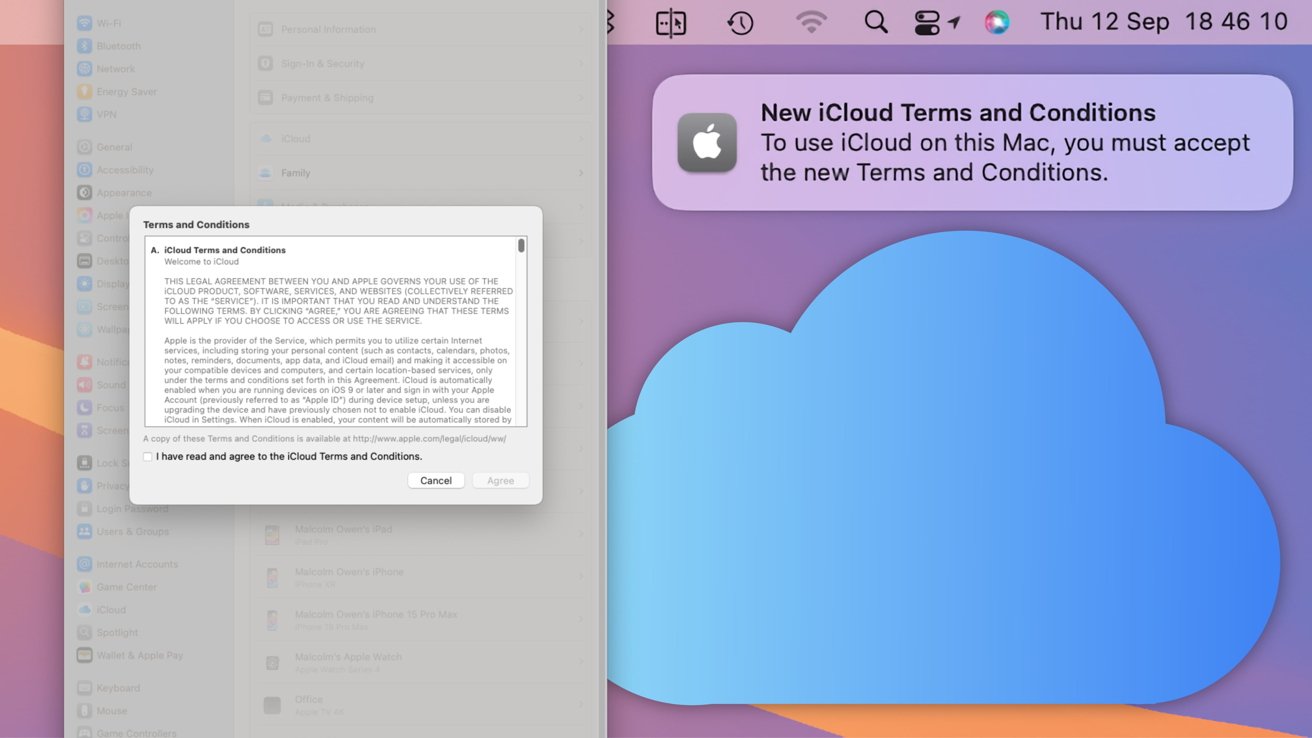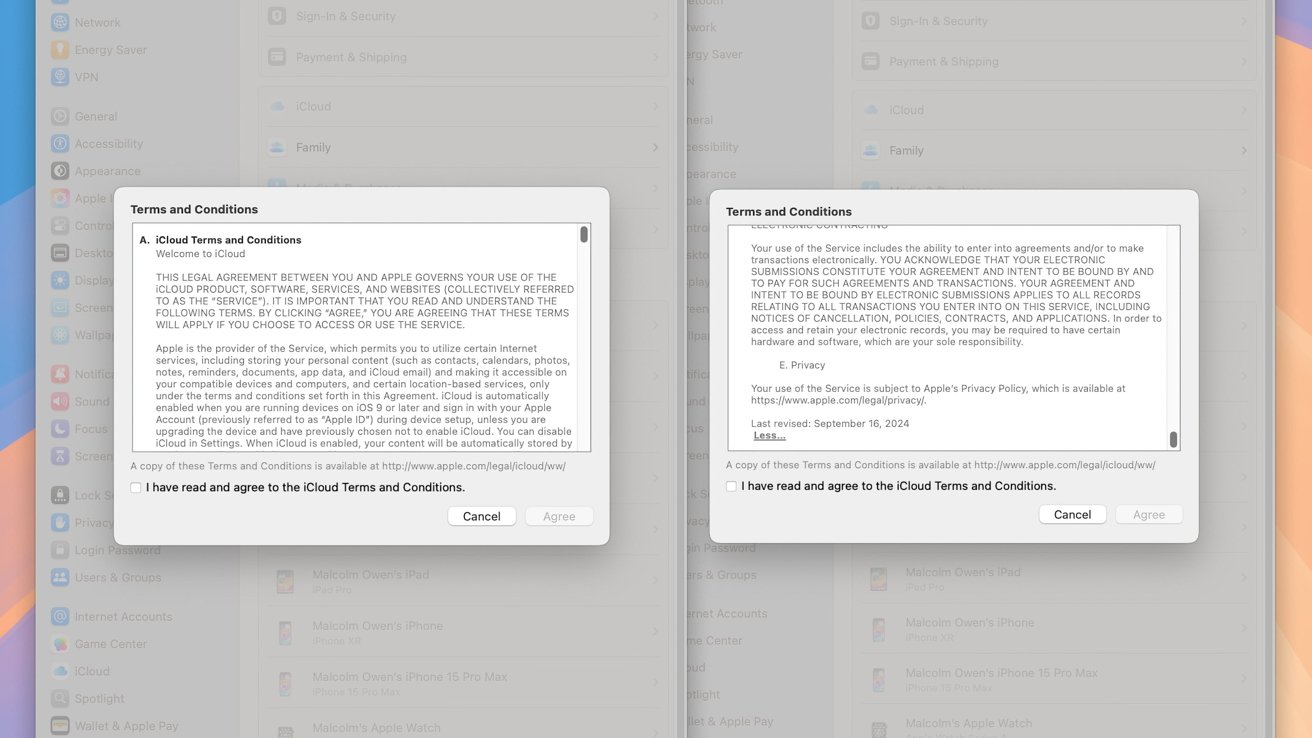
Apple has sent out a notification to some Mac users to agree to new iCloud Terms and Conditions, four days before they are supposed to apply. Here’s what’s new.
Mac users have started to receive notifications that they must accept new Terms and Conditions for iCloud if they wish to continue using it. The notification is fairly typical practice for Apple, but it’s apparently arriving earlier than planned.
Selecting the notification brings up macOS Settings, with a pop-up containing the new iCloud Terms and Conditions text. Scrolling to the bottom of the legal document reveals that the document was “Last revised: September 16, 2024.”
This four days in the future from the time of this report’s publication.
A supplied URL underneath the terms container leads to Apple’s website, with visitors greeted to a message stating “The page you’re looking for can’t be found.” This certainly makes sense if the text is supposed to go live on September 16.
Terms and conditions changes
The content of the 16 September 2024 text does make some changes versus the existing terms, last revised on September 18, 2023. AppleInsider’s comparison finds two general categories of changes in the document.
First, Apple has made a number of alterations switching out Apple ID for Apple Account. It has already changed the reference to Apple Account throughout most of its software ecosystem, so an update to legal notices was to be expected at some point.
One more definitive change is under section five, titled Content and Your Conduct. An extra term is included in the list under Your Conduct. All other list items are included as normal.
The new addition states that users must not use the service to:
3. engage in any activity that exploits, harms or threatens children in any way, including without limitation producing, sharing, uploading or storing Child Sexual Abuse Material (CSAM), Child Sexual Exploitation Material (CSEM) or any other content harmful to children.
The new line accompanies warnings to avoid stalking and harassing others, uploading or downloading unlawful or obscene material, intellectual property infringement, and other bad faith activities.

